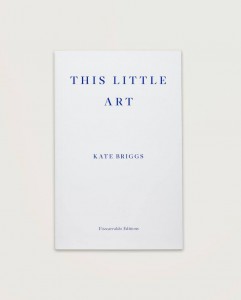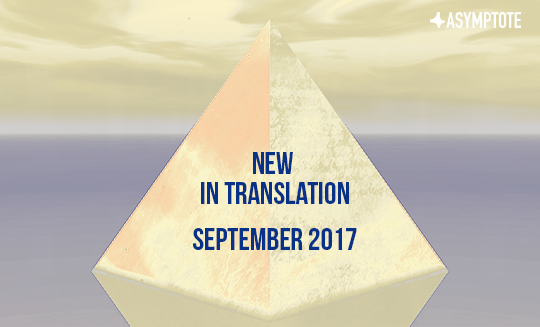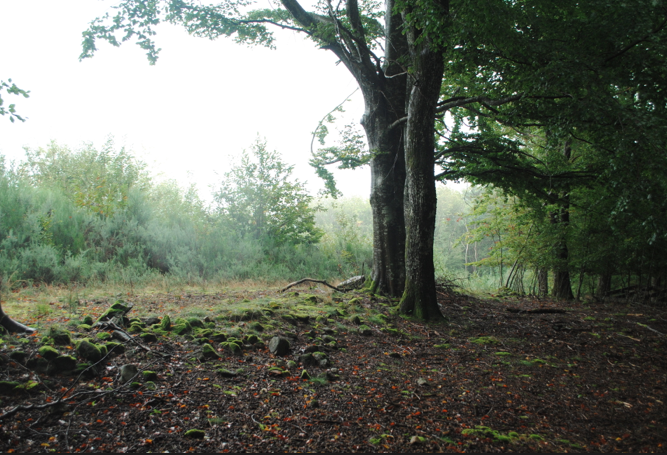Summer is drawing to a close and our bookshelves are groaning with the weight of new releases. Asymptote team members review three very different books—a genre-bending meditation on the practice of translation, a German bestseller about African refugees in Berlin, and an anthology of monologues that were once performed on the streets of Quebec City. There is much to delve into.

This Little Art by Kate Briggs, Fitzcarraldo Editions.
Reviewed by Theophilus Kwek, Editor-at-Large, Singapore.
It is in 1977, as he begins lecturing as Professor of Literary Semiology at the Collège de France, that Roland Barthes realizes he is no longer young: an “old and untimely body,” on a “new public stage.” But to speak to the students gathered—with their “new concerns, new urgencies, new desires”—he will have to “fling [himself] into the illusion that [he is] contemporary with the young bodies present before [him]”; he must, in Kate Briggs’s memorable words, forget the distances of age and time, and be “carried forward by the force of forgetting, which is the forward-tilting force of all living life.”
Briggs’s new book-length essay on translation, published this month by Fitzcarraldo (who surely must produce some of the most elegant books around) joins the ranks of treatises that ponder how we, as practitioners, should “properly register what’s going on with this—with [our]—work.” It’s an important question, she argues, not only because translation is a little understood (and hence undervalued) enterprise, but also because the process of translation itself sheds light on what it takes to make meaning, and art. Her answer, pursued over seven interlocking chapters, runs parallel to Barthes’s realization. Just as the old professor must “be born again,” translation is the work of making new: of bridging time and language to “make [literature] contemporary with [our] own present moment.” READ MORE…


